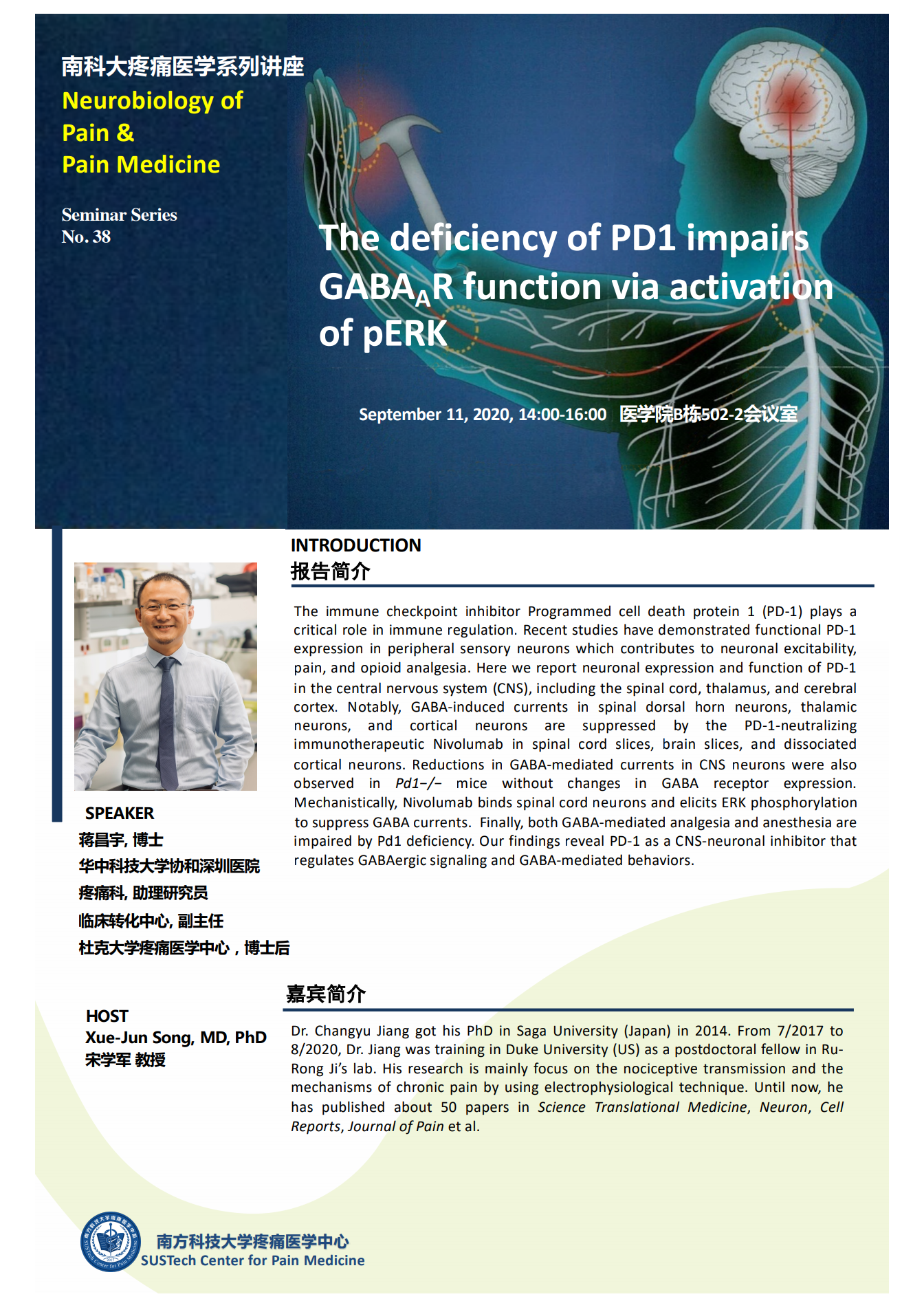
更新时间:2020-09-11
南科大疼痛医学系列讲座
Neurobiology of Pain & Pain Medicine Seminar Series No. 38
The deficiency of PD1 impairs GABAAR function via activation of pERK
September 11, 2020, 14:00-16:00 医学院B栋502-2会议室

Speaker
蒋昌宇, 博士
华中科技大学协和深圳医院
疼痛科, 助理研究员
临床转化中心, 副主任
杜克大学疼痛医学中心,博士后
HOST
Xue-Jun Song, MD, PhD,
INTRODUCTION 报告简介
The immune checkpoint inhibitor Programmed cell death protein 1 (PD-1) plays a critical role in immune regulation. Recent studies have demonstrated functional PD-1 expression in peripheral sensory neurons which contributes to neuronal excitability, pain, and opioid analgesia. Here we report neuronal expression and function of PD-1 in the central nervous system (CNS), including the spinal cord, thalamus, and cerebral cortex. Notably, GABA-induced currents in spinal dorsal horn neurons, thalamic neurons, and cortical neurons are suppressed by the PD-1-neutralizing
immunotherapeutic Nivolumab in spinal cord slices, brain slices, and dissociated cortical neurons. Reductions in GABA-mediated currents in CNS neurons were also observed in Pd1−/− mice without changes in GABA receptor expression. Mechanistically, Nivolumab binds spinal cord neurons and elicits ERK phosphorylation to suppress GABA currents. Finally, both GABA-mediated analgesia and anesthesia are impaired by Pd1 deficiency. Our findings reveal PD-1 as a CNS-neuronal inhibitor that regulates GABAergic signaling and GABA-mediated behaviors.
About the speaker 嘉宾信息
Dr. Changyu Jiang got his PhD in Saga University (Japan) in 2014. From 7/2017 to 8/2020, Dr. Jiang was training in Duke University (US) as a postdoctoral fellow in Ru-Rong Ji’s lab. His research is mainly focus on the nociceptive transmission and the mechanisms of chronic pain by using electrophysiological technique. Until now, he has published about 50 papers in Science Translational Medicine, Neuron, Cell Reports, Journal of Pain et al.